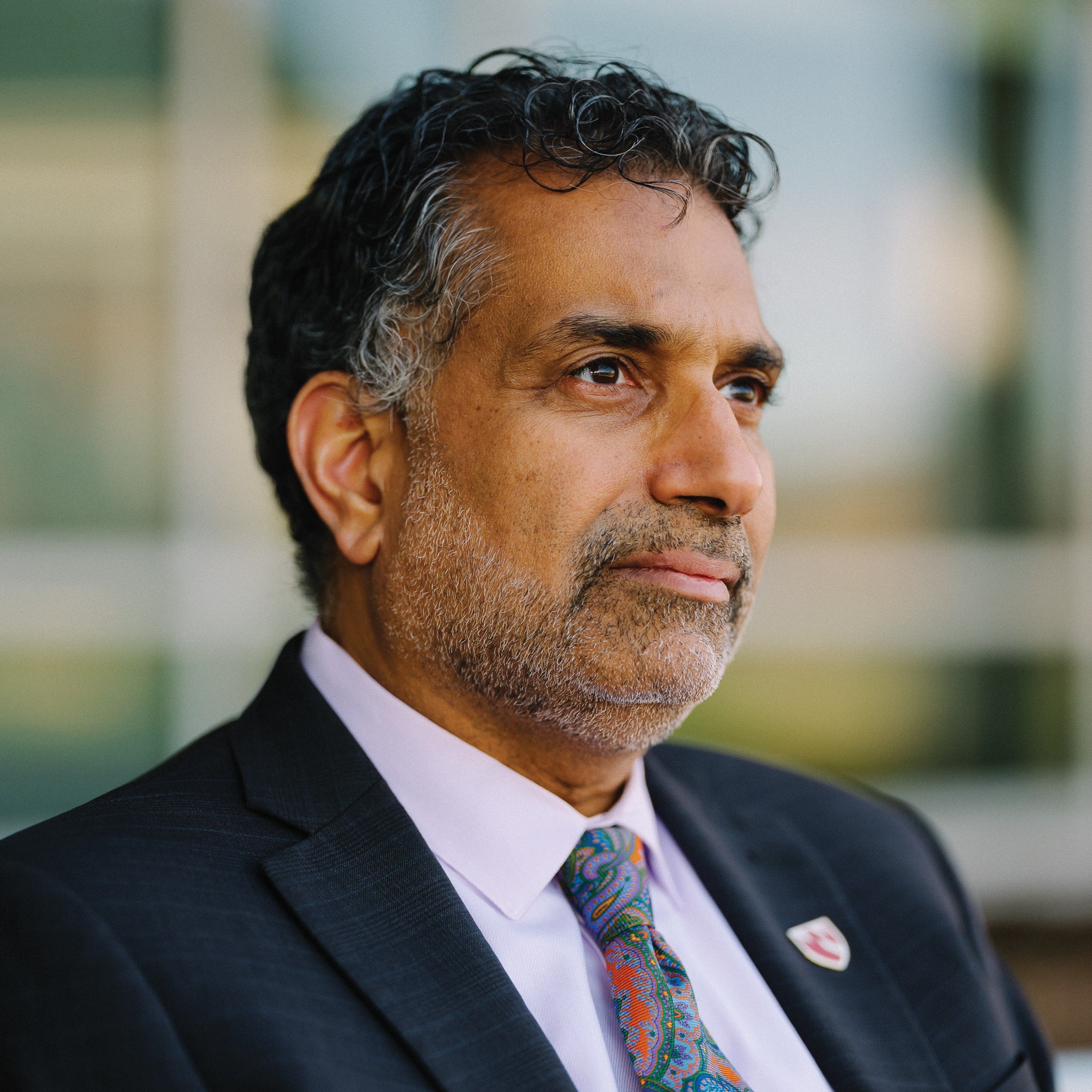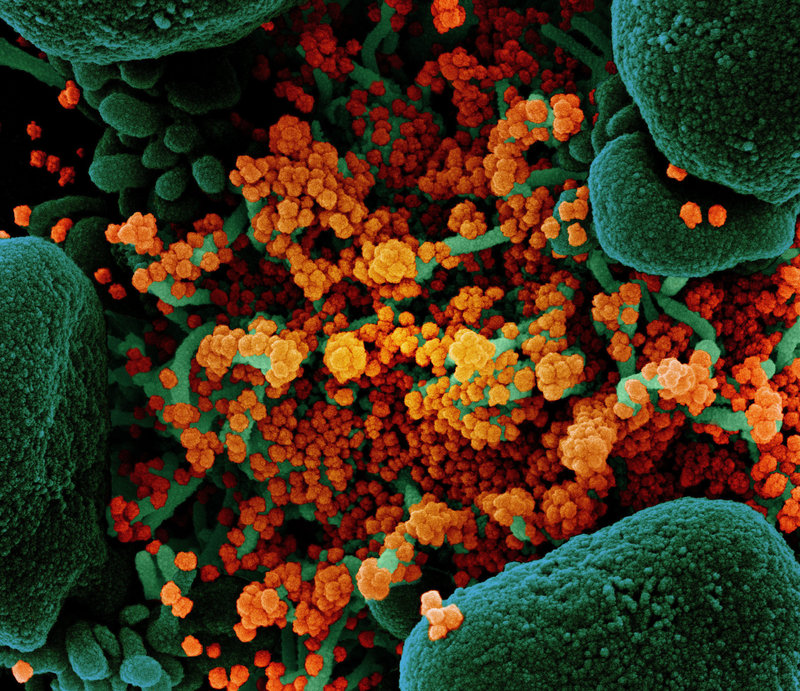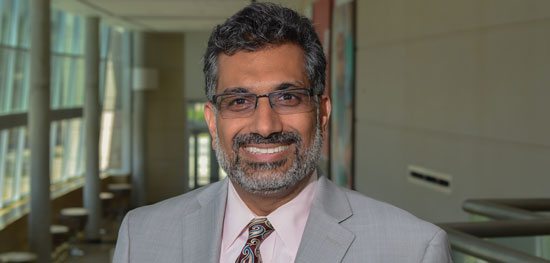At the forefront of the detection and control of the viral outbreaks within and outside the USA in the last more than 20 years was an epidemiologist, Dr Ali S Khan, a Kashmiri American, at the American Centre for Disease Control and Prevention. He was the American who, after the fall of the USSR, sat with Russian scientists to collaborate on vaccine technology. Having predicated a pandemic in 2016 in his book, Dr Khan talked to Saima Bhat on being a virus hunter and the issues linked to the ongoing pandemic

In 2016, when Dr Ali S Khan came up with his book The Next Pandemic: On The Frontlines Against Humankind’s Gravest Dangers forecasting that an unknown virus might spill out from the animals into the human, which will transmit from person to person creating a global pandemic. Then it looked like a fiction. Only four years later, the world is actually struggling with a pandemic that has killed around 650 thousand people worldwide.
Dr Khan, MD, MPH, presently a Dean at the College of Public Health at the University of Nebraska Medical Centre in Omaha (USA), has been a medical doctor by training, an epidemiologist by career. He has worked for two decades as an officer at the National Centre for Zoonotic, Vector-borne, and Enteric Diseases, Centre for Disease Control and Prevention (CDC), Department of Health and Human Services. He joined CDC and the US Public Health Service Commissioned Corps in 1991 as an Epidemic Intelligence Service officer.
Born and raised up in Brookly by his Kashmir origin parents, Dr Khan has worked tirelessly for crucial epidemiological work for many years at the international level. During the 1995 Ebola outbreak in Kikwit, then Zaire, he was the person who was organizing counter-epidemic measures, investigating transmission, tracing the outbreak back to its Patient Zero, to end the cycle of misery and death.
After that his expertise and services were sought when severe acute respiratory syndrome (SARS) hit the world in 2003, which had come out of southern China and killed people in Toronto, Singapore, and a few other cities. Considered as the bad respiratory illness that led lead to lethal pneumonia, infected more than eight thousand people, of whom about ten per cent died, and then the outbreak ended.
In controlling the different deadly viruses he has travelled the world on outbreak responses for two decades. He was the person behind investigating the Hantavirus outbreak in southern Chile for which he visited remote villages, sometimes on horseback, trapping rodents to determine which species carried the virus.
Other than Ebola, Crimean-Congo hemorrhagic fever, Ebola again in 2001, SARS in Singapore, in 2003, he worked in Chad as well to eliminate polio in 2008, he worked for monkeypox, avian influenza, Rift Valley fever, avian influenza, the Asian Tsunami, and the initial public health response to Hurricane Katrina in New Orleans.
After Hantavirus was controlled he worked on Rift Valley fever in Saudi Arabia, in 2001. In appreciation of his work the Saudi Minister of Health gave him a Lucite replica of a beheading sword as a token of gratitude, reported The New Yorker.
His vast experiences have been colourful field adventures and seriously threatening situations also. Khan has written most of his experiences in his book. He has always been at the forefront as a warrior not to fight with the patients only, but to strategise and plan the removal of the diseases.

In 1999, Dr Khan also served as one of the main architects of CDC’s public health bioterrorism preparedness programme which upgraded local, state, and national public health systems of the USA to detect and rapidly respond to bioterrorism.
As CDC Deputy Director, he has led the creation of the critical agent list, which reportedly became the basis for all biological terrorism preparedness. This work was published as the first national public health preparedness plan with key focus areas to improve local and state capacities and initiated pilots of syndrome-based surveillance. These preparedness efforts were reported to be crucial in limiting the scope of the first anthrax attack during which he directed the CDC operational response in Washington.
Before joining CDC, Dr Khan received his MD from Downstate Medical Centre in Brooklyn, New York and completed a joint residency in Internal Medicine and Paediatrics at the University of Michigan, Ann Arbor. He is a fellow of the American Academy of Paediatrics and the American College of Physicians. He has since completed a Masters of Public Health from Emory University’s Rollins School of Public Health where he now holds an adjunct Professor appointment and co-directs the Emerging Infections course. He has over 150 peer-reviewed publications, textbook chapters, editorials, and brief communiqués. He has consulted extensively for multiple US organizations including NASA, Ministries of Health, and the World Health Organization.
These days Khan remains busy with the discussions for drug-trials research, immune response, the latest in disease modelling, and how best to decontaminate N95 masks.
In an interview with the morning edition of NPR in May, Dr Khan was confident that the second wave of Coronavirus will happen in the USA. He described the second wave through community transmission as a mountain range rather than a big peak. “Even though we call it a pandemic, it’s really multiple hundreds of different outbreaks in the US going on at the same time,” he had said. “A lot of separate outbreaks will feel like sort of a second wave coming.” This situation he predicted as his country did not adhere to the basic protocols for pandemics.
The only things to protect masses he had said was the ramping up testing and contact tracing as well as a continued adherence to public health practices such as washing hands, social distancing and wearing masks.
In the middle of the Covid-19 pandemic that has made the USA the biggest epicentre of the virus, Kashmir Life spoke to Dr Khan to understand the history of viruses and the devastating they have created to humankind. Owing to his extremely busy schedule he managed to respond after almost two months. Here are the excerpts of the interview:
KASHMIR LIFE (KL): The great epidemiologist in the USA is a Kashmiri. Dr Khan, please tell us more about your Kashmiri roots and your parents. Why and how your father came out of Kashmir?
Dr Ali S Khan (DASK): My family comes from a beautiful valley in the foothills of the Himalayas from now Pakistan-occupied Kashmir. As a teenager in pre-partition India brutally ruled by the British Empire, my father left on a multi-week journey to Bombay to escape poverty and find adventure. He lied about his age and joined a merchant ship as a greaser boy in the engine room under the eye of many Sikh elders who kept watch over him.
My father eventually jumped off a ship in San Francisco after the Second World War and made his way to New York City, our home for 70 years.
KL: You have helped in fighting deadly epidemics like Ebola, SARS, MERS and a lot more scary diseases, which killed thousands of people. You have always been on the ground, you were never scared? Please share some experiences.
DASK: Yes, I have been honoured to join and lead many global investigations with my work at the US Centres for Disease Control and Prevention and the World Health Organization (WHO). This has included trips to India and Pakistan.
I am rarely scared of the diseases – these are simple microbes. We know how to prevent them and my job was to help get them under control. I was occasionally scared such as when I took care of Ebola patients in full personal protective equipment and low light making a needle-stick injury very possible.
I was more at the risk from the situations I found myself including no food safety, civil unrest, child shoulders, small aeroplanes.

KL: After reading your work, I have realised epidemiology is a very important field then why the subject is not taken so seriously in the third world countries?
DASK: Yes, epidemiology and public health are an extremely important field, more now than ever. Unfortunately, children rarely learn of this as a career field. And governments do not fund enough to prevent disease and promote health. They are more likely to finance poor functioning healthcare systems which are more visible to the community.
KL: In 1918, many deaths were reported and we couldn’t do anything to stop them. In 2020 when we are caught by Coronavirus we are still not able to do anything to prevent deaths. Why is it so? And how is Covid-19 different from other epidemics like Hantavirus, Monkeypox, Ebola and SARS?
DASK: Covid is not different from Ebola or SARS or Monkeypox in that it can be easily contained with good public health. Unfortunately, the global community needs to learn this lesson again and again.
KL: Why is it after every killing epidemic is over we forget the chances of having a new disease? Why is the world caught unprepared always? You had recommended creating one common platform worldwide to fight these diseases, is there any progress on that front?
DASK: Political leaders have short terms and shorter memories. It is easier to fund something visible for more votes than invest in preparedness. The WHO exists to help fight diseases but it needs to be reformed and we need new global leadership at the level of the United Nations.
KL: Influenza kills more people than any epidemics. Why are we not able to control influenza even if doctors recommend influenza vaccines before the onset of every winter? And what is the chance of developing antibiotic resistance because of them?
DASK: Influenza is a virus so antibiotics do not work and actually lead to greater harm in the community. Influenza can be prevented with a vaccine but the vaccines are not very good and everybody does not get vaccinated each year.
KL: You have met so many people affected by many diseases, why is a stigma attached to all diseases including epidemics and pandemics?
DASK: I believe there is a primordial survival instinct to prevent infection. We have seen this for centuries with global plagues even before we knew they were due to microbes. Think about the word leper.
KL: Most of the epidemics have started from China. What is the connection? And this time as well, there was a rumour initially that the virus came out of a laboratory in Wuhan, do you see it as an attempt of bioterrorism?
DASK: The virus was natural from bats as are other similar Coronaviruses. There are lots of opportunities in a country the size of China and their customs for animal disease – like influenza and Covid – to move to humans.
KL: We have seen bats, rodents as the basic transmitters of the epidemics and pandemics. Isn’t it possible we get away with both of these?
DASK: No. Bats and rodents play an important ecologic role and are too abundant to eliminate. The same challenges exist for mosquitoes.
KL: How long it takes epidemics and pandemics to go away? And why is it that some people die and some recover from the same disease? Is there any chance of ending the dance of microbes and humans?
DASK: We will always have infectious diseases from the natural world and us.
KL: You are a doctor by profession and we have seen doctors’ writing papers or academic books only. How you managed to write this wonderful book which is more like a novel, keeps you hooked till the last page?
DASK: I had excellent help from my co-author, Mr Patrick, and my publisher, Mr Adams at Hachette Books.
KL: Other than pandemics and epidemics, rising global temperatures and chaotic weather patterns is another threat but then there is bioterrorism and nuclear war threat as well, which one you think can prove more deadly?
DASK: The next pandemic with 1918 Influenza-like virus.
















Having gone through article about Dr Ali S Khan with special reference to his work regarding Diseases Control in the United States, India, Pakistan and around the globe I am extremely impressed and convey him my gratitude for his services towards the safety of mankind. I pray for great success in the field of his profession. May Allah bless him with long life for serving the humanity.